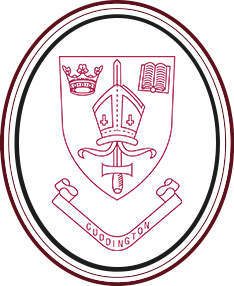Geography
Purpose of study
A high-quality geography education should inspire in pupils a curiosity and fascination about the world and its people that will remain with them for the rest of their lives. Teaching should equip pupils with knowledge about diverse places, people, resources and natural and human environments, together with a deep understanding of the Earth’s key physical and human processes. As pupils progress, their growing knowledge about the world should help them to deepen their understanding of the interaction between physical and human processes, and of the formation and use of landscapes and environments. Geographical knowledge, understanding and skills provide the frameworks and approaches that explain how the Earth’s features at different scales are shaped, interconnected and change over time. The Reach Out curriculum has been designed to incorporate fundamental geographical knowledge and skills, which allows pupils to build on a firm foundation in future years. This will allow children to grow their knowledge in their future education and enable them to be an active member of society.
The national curriculum for geography aims to ensure that all pupils:
- develop contextual knowledge of the location of globally significant places – both terrestrial and marine – including their defining physical and human characteristics and how these provide a geographical context for understanding the actions of processes
- understand the processes that give rise to key physical and human geographical features of the world, how these are interdependent and how they bring about spatial variation and change over time
- are competent in the geographical skills needed to:
- collect, analyse and communicate with a range of data gathered through experiences of fieldwork that deepen their understanding of geographical processes
- interpret a range of sources of geographical information, including maps, diagrams, globes, aerial photographs and Geographical Information Systems (GIS)
- communicate geographical information in a variety of ways, including through maps, numerical and quantitative skills and writing at length.
The Geography Curriculum at Cuddington
Cuddington will “Bring out the Best” in our pupils by providing a language rich and diverse experience both within and beyond the classroom. Our flexible approach enables everyone to thrive personally and academically, overcome challenges and prepare them for lifelong learning.
This is reflected in our curriculum approach to learning Geography, using the aims set out in Development Matters (2021) and the National Curriculum (2014) as frameworks for how we map content, ensure progression in knowledge and sequence our units of work.
Intent, Implementation, Impact
At Cuddington Primary School, our geography curriculum aims to teach children fundamental geographical skills by developing pupils’ locational and place knowledge, human and physical geography and use of maps and fieldwork. Our geography teaching enables pupils to become confident, life-long learners who are inspired, and have a curiosity and fascination for the world, equipping pupils with the knowledge about diverse places, people, resources, natural and human environment as well as deepening their understanding of the Earth’s key physical and human processes.
Cuddington Primary School use high quality resources from REACH/Pearson for KS2 and have developed a comprehensive curriculum that meets the needs of our children. It provides the right balance between substantive knowledge and disciplinary knowledge, which supports teaching, learning and assessment. Our pupils will be equipped with the skills needed to help them aspire and thrive in achieving a deeper understanding of the wider world. Our pupils will be equipped with confidence and security in their geographical knowledge and will be able to apply taught skills with confidence and independence.
KS1 and KS2 Curriculum Overview
|
|
Autumn |
Spring |
Summer |
|
Year 1 |
Weather |
Hot and Cold Places |
|
|
Year 2 |
|
Comparing Countries of the UK |
|
|
Year 3 |
Villages, Towns and Cities |
Mountains, Volcanoes and Earthquakes |
Water, Weather and Climate |
|
Year 4 |
Rivers |
Migration |
Natural Resources |
|
Year 5 |
Slums |
Biomes |
Energy and Sustainability |
|
Year 6 |
Local Fieldwork |
Population |
Globalisation |

